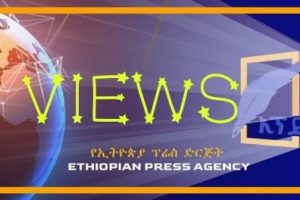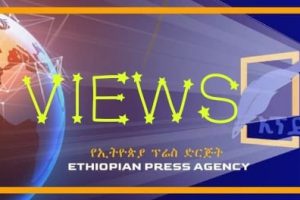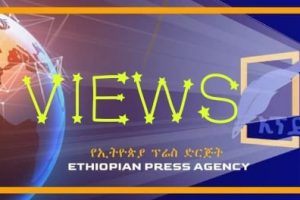BY YEHEYS NARDOS HAWAZ AND CHEN XI (Ph.D)
Since 2018, the new administration of Ethiopia gained public support as it had shown a different position, political strategy, and structure than the previous administration. Most importantly, its apology and reconciliation call for political parties and opposition parties has created a great deal of political turmoil in the country, and has seen a vision of creating a multi-party nation, including the opposition parties.
It has been three years since the political parties and politicians who were operating abroad agreed to return home and started the peaceful competition. These parties are the OLF, the ONLF, and the Ginbot 7 (which is later merged and formed Ethiopian Citizens for Social Justice).
If the Ethiopian government has taken such a step to address the political instability in the country, what is the attitude of the political parties? Do these parties have a truly competitive or oppressive perspective? What is their political program towards the country’s constitution and election proclamation? These questions have not been answered clearly but only a few months away from holding elections in Ethiopia.
To enforce the constitution, the registration of opposition parties as per the constitution and the election proclamation; the Electoral Board has the legal authority to conduct the country’s elections. These parties have been recognized for the election under these criteria.
Electoral law as a starting point
Ethiopian elections are held every five years. Pursuant to article 38 of the Constitution, every person over the age of 18 can participate in elections and may participate on behalf of the group to which he or she is a member voluntarily. It is clear that this group is a political party. This is how a political party is created.
Nevertheless, the legal entity is directly related to the Electoral Board. Article 102 of the Constitution states that the Electoral Board shall be established in accordance with the law of the country in order to conduct free and fair elections.
Accordingly, it is an institution that can grant, renew and revoke the licenses of political parties based on the registration criteria of political parties in accordance with the Constitution and the electoral proclamation, as well as allow and prohibit them from contesting elections.
According to the Ethiopian Electoral, Political Parties Registration and Electoral Code of Conduct proclamation 1162/2019, one of the requirements of the parties wishing to participate in the country’s elections is to inform their main political program.
Every political party shall have a political program approved by the general assembly of the party to formulate its political beliefs. Article 66/4 of the proclamation stipulates that the parties are required to comply with the election law and related laws.
However, it did not comment on the content of the party program. Consequently, it is expected that the party program will be in accordance with the constitution and other laws of the country, not contradictory.
These laws, for example, include the legal title (the Federal Democratic Republic of Ethiopia), the government system (Parliamentary system), the principles of the Constitution (ex. Secularism) and it covers other wide range of issues. There is no question as to whether political parties will review their programs based on this fact or against.
Recently, the National Electoral Board of Ethiopia (NEBE) issued a directive on the obligations of national and regional parties (in accordance with Proclamation No. 1162/2011). The department does not indicate that there is a system of submission and cancellation using the political program as a criterion.
The House of Peoples’ Representatives, in its recent regular session, have also amended election proclamation 1162. However, these amendments are not about the party programs but focused on articles 31/1 and 2 regarding the collection of signatures in support of private candidates and political party candidates.
Based on these issues, the NEBE has finalized the registration of political parties and preparing for the next election. There is no clear information on whether the appearance of political parties is examined in accordance with the constitution. Political parties are also stepping up their individual preparations. But what is the nature of political parties in Ethiopia in terms of the constitution?
The aspect of political parties in terms of the constitution
The question of how much the political program of Ethiopian political parties in line with the constitution is highly controversial. In addition to that, the fact that no one cares about the political parties’ programs is another surprise.
The Joint Council of Political Parties in Ethiopia has 116 members, all of whom are active at the national and regional (sub-national) levels. However, not every party is in the next election as some do not meet the requirements for voter registration.
There is no evidence that those who will run in the next election have been assessed per the Constitution, but with the directives issued by the electoral board. Certain parties can be used to show how their political program is viewed in terms of the constitution.
Ethiopian Citizens for Social Justice is an organization formed by seven political parties. Semayawi Party, which had been widely associated with popular uprisings, focused on individual rights rather than the group on the contrary to the constitution, and Ginbot 7 which was mentioned as a terrorist organization under the country’s previous law are among the seven.
These
two parties merged with the other five parties to form the Ethiopian Citizens
for Social Justice in 2019. Although the party’s website shows that the party
is based on the principles of decentralization and works for the establishment
of political and social justice based on citizenship, the political
system is presidential which is contrary to the constitutional parliamentary system. Besides, the party has also taken a different stance on the constitutional interpretation and the flag, based on future constitutional amendments.
These ideas are contrary to the provisions of the Constitution. If Ethiopian citizens for social justice wins the next election, a constitutional amendment is undoubted, one of the major issues to be addressed. However, as the procedure is unsated it might cause political chaos.
Ogaden National Liberation Front (ONLF) was a party that fought for the liberation of the Ogaden through military struggle and agreed to fight peacefully at the behest of the Prime Minister. Accordingly, the party is one of the parties recognized by the electoral board to run in the next election. At the party level, the party is a regional, not a national party.
The political agenda of the ONLF is very different not only from the political point of view but also from the constitution. The party’s political program begins with the statement, “Our country is a colony of Ethiopia without the consent of the people.”
It further noted that the struggle of ONLF is with colonialist Ethiopia. It is a challenging question of whether this idea represents the people of the region and not the party.
According to the electoral law proclamation No. 1162/2011, the number of members required to form a regional political party is at least 100,000. The formation of ONLF was preceded by the proclamation. However, to be recognized by the NEBE, it must meet all the requirements. Of these, at least one hundred thousand members signed the memorandum, and at the same time, they were required to report on the political program and other related matters.
If ONLF is recognized based on these requirements, it indicates that the NEBE have accepted the political program which is contrary to the constitution. In fact, given the size of the Somali population, the number of party members on the proclamation (hundreds of thousands) is unlikely to affect the region.
However, there were no official records on the number of party members and public support. Based on these developments, the idea of what to expect if the ONLF wins an election in the Somali region could lead
to serious political conflict between the region and the federal government, with the probability of war.
Like the ONLF, OLF is a party that came into the country to peacefully compete following the call of the prime minister. According to the party’s mission, the Oromo people have been colonized by Abyssinia and the formation of the party is in opposition to this colonization.
The party followed a policy which includes different prospect in security and armed struggle which is on the contrary to the constitution. Nevertheless, OLF has been recognized in NEBE to run in the Oromia region. There is no guarantee that the threat by the ONLF will not arise in Oromia with OLF.
Is it too late to take a common national consensus?
Although there is little time left for the election, it is still not too late to address some issues. The current situation and future of Ethiopia are still based on the constitution. However, at the institutional level, it must be careful not to do anything that could jeopardize the survival of the nation. As these parties have public support, they have also opposition.
There must be a national position that continually safeguards the supremacy of the constitution if they win. The socio-economic and political crisis of the 2005 elections in Ethiopia continues to cast a shadow over the future. The impact of this shadow on the incoming election is even greater than in 2005.
Political program differences can easily lead to conflicts. Even though the recent extension of the election was approved by the national assembly, differences between the TPLF and the federal government have gradually grown which finally led to war.
As the legislature of a country, the laws the house makes should be enforced by the executive. The House, per its constitutional mandate, has the power to legislate on constitutional rights and the conduct of elections and has also decided to declare the state of emergency as stipulated in article 93.
The TPLF party has strongly opposed the decision of the House to extend the election. Sticking only to the constitutional term of election, TPLF has unnoticed the constitutional mandate of the House of Representatives, which has led to a major political crisis in the country.
Since the rule of law promotes peace and stability, political parties should learn from the recent war over the rule of law. It is first and foremost necessary to show compliance with the laws of the land. Amendment procedure can be included within the legal framework.
However, the program of political parties has some scary aspects in terms of the law of the land. While improving the law can be considered as part of political party commitments, but designing a party program to oppose the law is another aspect. In such cases, the spirit of competition can be overwhelming by the opposition.
At the government level, there is still time to consult with political parties on constitutional issues. Political parties should also agree that the idea of amending the constitution should be per the rule of law and not in the interests of the political party. It is better to evaluate the political program of parties from a constitutional point of view to save Ethiopia from chaos.
If the parties win the election, it is expected, they will be as quick to change ideology while If they lose, they may be showing that they have been deceived by their political views. Following this, greater preparation is needed to reduce the conflict between support and opposition.
The Electoral Board is still responsible for upholding the rule of law as the country is still governed and elections are held under this constitution. Recognition of opposition organizations that openly oppose the constitution will not contribute to national unity and national consensus. Therefore, it would be good if the amendment of the Political Parties Proclamation includes these requirements.
Source: Modern Diplomacy
The Ethiopian Herald February 24/2021





